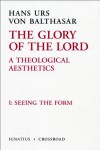An Innocence to which I Aspire

GK Chesterton is one of my favorite authors. He was possessed of a huge intellect, immense jollity, a flair for the fantastic, and a profoundly childlike sense of wonder, all combined with a genuine love of words. Words were his toys. Reading his books, it is easy to see how much he enjoyed playing with them, putting them together, taking them apart, turning them over and around, and then putting them together again in different ways like a child excitedly playing with building blocks to see how many different buildings he can make from the same set. I think this is part of the reason that few share his ability to turn a phrase with such wit, or fill a single sentence with so many layers of meaning.
In "The Innocence of Father Brown", Chesterton invests these gifts in an unlikely hero; a short, soft-spoken, round-faced, Roman Catholic priest who happens to solve crimes on the side. Like other great fictional detectives, Father Brown frequently succeeds where the police fail. Where he differs is how he arrives at the solutions. Father Brown is, like all great detectives, logical, rational, and highly intelligent. But as a priest who hears the confessions of those who come to him for reconciliation, he is also intimately familiar with the evil that lurks inside all human beings, particularly the criminal. He is able to feel with the criminal the motivations behind the crime, and that, combined with his brilliance, leads him to uncover one crime after another.
These are some of the finest short stories in detective fiction I've read so far, but they go much deeper than simple whodunits. Father Brown allows Chesterton to explore the the consequences of the fall of man among both the criminal and the respectable elements of society, but his combination of wit and whimsey prevents the stories from becoming preachy.
Father Brown is one of the least likely and most enjoyable detectives in mystery fiction. I recommend him highly.







